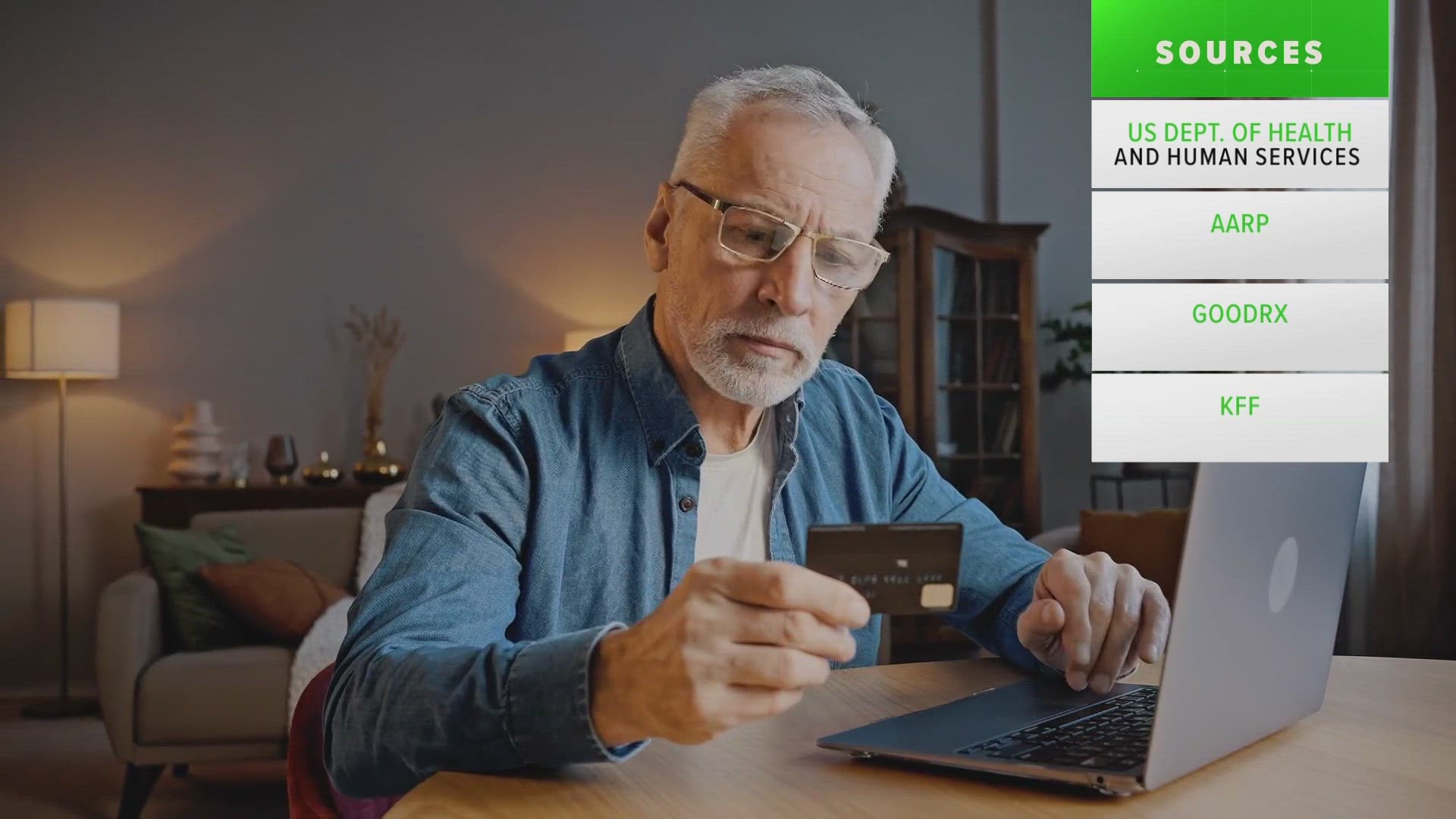WASHINGTON — Winter is a busy time for people who need different health care plans.
The annual open enrollment period for Medicare ended Dec. 7, while Affordable Care Act open enrollment ends Dec. 15 for people wanting new coverage by the start of the new year, and the time to switch Medicare Advantage plans begins Jan. 1.
Health care costs are a big financial driver for many families, and scammers know that, too.
A viewer named Tim asked WUSA9 whether he could trust ads he saw that promised thousands of dollars in government subsidies.
QUESTION
Are ads promoting health care plans that offer cards with thousands of dollars in subsidy benefits likely to be legitimate?
SOURCES
ANSWER
While some health care plans are subsidized, they do not come with cash benefits
WHAT WE FOUND
Tim pointed to two ads he saw recently that offered slightly different forms of cash benefits.
One promises a "Health Benefits Card" with $1,400 a month for expenses like rent and groceries. The other says all Americans will get a card with up to $6,400 a month for basic spending.
There is a health insurance subsidy that is similar in amount to what the second ad promises, but it is not bonus cash and does not come loaded onto a prepaid card.
The Affordable Care Act provides subsidized insurance plans for people who fall below certain income levels. According to KFF, a nonprofit that focuses on health policy, the subsidy is either paid straight to the insurance company, or refunded to consumers after they pay their taxes the following year.
Some Medicare Advantage plans also offer flexible spending cards. AARP said the cards allow users to pay for many medical expenses covered by their insurance policies. Some also allow users to pay for non-medical expenses. Anthem, for example, says customers can use their flex cards to pay for some groceries, utilities and fitness expenditures.
The Department of Health and Human Services, AARP, and GoodRX all warn that scams are common this time of year as customers search for health care plans that may save them money. They all say, if something sounds too good to be true, it probably is. They also advise people to never give out personal information such as social security numbers, Medicare ID or bank account numbers to someone trying to sell you a health care plan.
Another red flag regarding one of the sites Tim asked about is that it claims the $1,400 a month benefit will expire within two minutes. However, if you refresh the page, the timer starts over. The Federal Trade Commission says scammers often try to create a false sense of urgency to trick people into doing what the scammers want.
If you believe you are the victim of a fraud or scam or an attempted fraud or scam, you are encouraged to report it to the Federal Trade Commission.

